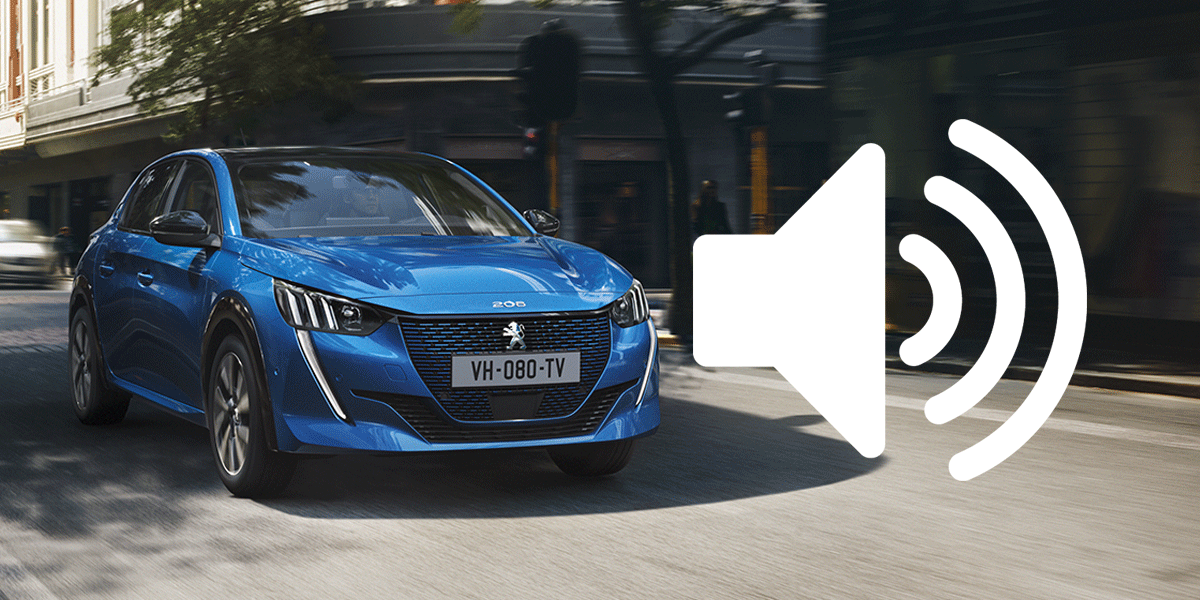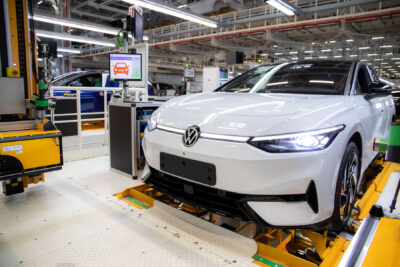This is a warning: AVAS for electric cars
Starting this July, newly homologated electric cars will have to make artificial noises at low speeds. That may be good news for sound designers, but the obligation to sound is unfair, our research suggests because new combustion engines are almost as quiet on the road.
It is a missed opportunity that could have made car traffic more human-friendly: Electric cars have been prescribed an Acoustic Vehicle Alerting System (AVAS), an artificial driving noise. AVAS is mandatory for type-tested cars from 1 July (“homologation”). Two years later, on 1 July 2021, all newly registered electrified passenger cars must follow, according to EU and UNECE regulations. Perhaps by then, first-generation electric vehicles like the BMW i3, Tesla Model 3 and Volkswagen e-Golf will become instant classics – because they are silent.
Unlike today, switching off the exterior sound will be forbidden in future. In the EU and China, a speed limit of 20 kph applies, in the USA it is 30 ph (18.6 mph) up to which AVAS must be on. Admittedly, electric cars are hard to hear when driving at low speeds, i.e. in front of schools or kindergartens, at a crossing. There is also a clear duty to protect people with visual impairments and anyone who rely on their hearing.
As AVAS becomes law, branding is a must
Manufacturers have turned legal necessity into a science. Just as a random car door or the combustion engine should sound good, so shall AVAS. The artificial sound must match the brand’s image – an idea that is easy to imagine for musical people, but abstract for others. Take Audi sound designer Rudolf Halbmeir, who finds inspiration in science fiction films: “When you compose music or sound, you have to stay true to your convictions. As soon as you compromise, you end up in acoustic uniformity.” Audi characterises the exterior sound as “broadband, technically high-quality and defined”. And the competitors are probably just as vocally ambitious.
It is understandable that the automotive industry wants to meet international requirements as positively as possible. Besides, it is evident that the image damage would be catastrophic if the number of accidents caused by electric cars actually increased. Nevertheless, doubts remain as to whether AVAS in its adopted form is sensible and fair.
Several tests have shown, the problem of (allegedly) too quiet cars is real, in the lowest speed range before somewhere upwards from 20 to 30 kph the tyres’ rolling noise takes over. The general assumption is that electric cars are quieter and therefore less perceptible than vehicles with internal combustion engines.
This is precisely where the Center Automotive Research (CAR) of the University of Duisburg-Essen disagrees. Professor Ferdinand Dudenhöffer, head of CAR, had conducted several test series including both battery-electric cars and conventional vehicles early on and published the results: The most extensive test series in 2011 had 240 participants aged five to 95. Of those, 14 per cent were hard of hearing, and 35 subjects were visually impaired or blind.
New spark-ignition engines and mild hybrids are as hard to hear
Significant differences in noise levels of BEVs and ICEs were only noticeable at full throttle and high speed. In other driving situations, on the other hand, the noise level was mostly the same. This also applied to subjective categories: test participants found criteria such as “quiet, weak, smooth-running, dull, ordinary, damped, soft and deep” to refer to an electric car and an identical vehicle with a combustion engine in almost equal measure.
“The data show that it makes little sense to equip electric cars with artificial noises and to refrain from doing so for gasoline cars,” summarises Dudenhöffer. “If anything, both vehicle categories would have to make software-generated noise. However, observations in road traffic have shown no significant increase in the number of accidents since the introduction of modern petrol engines.” To be consistent, the study concludes, you’d need to equip all vehicles with AVAS: “But hopefully no politician would dare to go down this route. We should enjoy the peace and quiet and not be afraid of a supposedly increased risk.”
Several years have passed since the study, and vehicles with internal combustion engines have become even quieter. The extended start-stop systems and mild hybrids also play an important role here: new cars are in fact just as quiet as electric cars when in push-mode at low speeds as they only depend on the engine when accelerating again.
Automatic emergency braking systems as additional safety devices
However, the legal requirement for AVAS only applies to passenger cars that can “accelerate electrically”. This means it affects Toyota’s range full of hybrids, for example.
But the above consideration of facts is a waste of bytes in the end because the introduction of AVAS is set. Although no law is unchangeable, residents in urban and rural areas will have to live with various composed sounds for the foreseeable future.
The hope remains for car manufacturers to program the lowest required volume. Said minimum does only depend on the frequency band. On average, it should be 56 decibels at ten kph and 50 decibels at 20 kph.
A more sensible alternative to AVAS could be automatic emergency braking systems. Practically every new car has them, they improve every year, and they react even when the driver is distracted by the smartphone or the pedestrian by the music in his headphones.
Reporting by Christoph M. Schwarzer





9 Comments